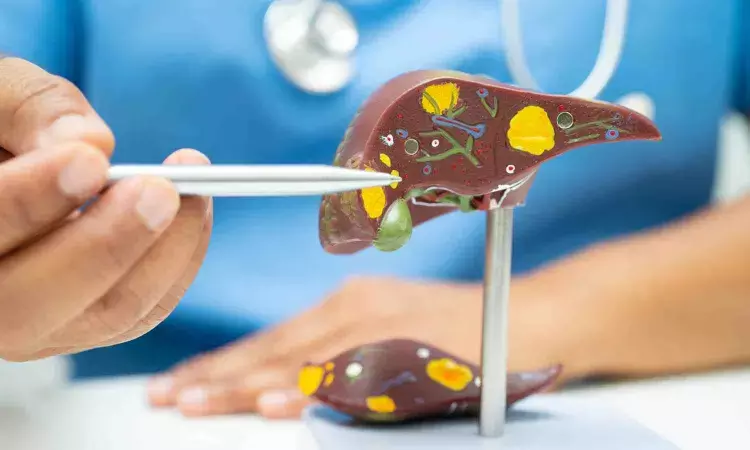- Home
- Medical news & Guidelines
- Anesthesiology
- Cardiology and CTVS
- Critical Care
- Dentistry
- Dermatology
- Diabetes and Endocrinology
- ENT
- Gastroenterology
- Medicine
- Nephrology
- Neurology
- Obstretics-Gynaecology
- Oncology
- Ophthalmology
- Orthopaedics
- Pediatrics-Neonatology
- Psychiatry
- Pulmonology
- Radiology
- Surgery
- Urology
- Laboratory Medicine
- Diet
- Nursing
- Paramedical
- Physiotherapy
- Health news
- Fact Check
- Bone Health Fact Check
- Brain Health Fact Check
- Cancer Related Fact Check
- Child Care Fact Check
- Dental and oral health fact check
- Diabetes and metabolic health fact check
- Diet and Nutrition Fact Check
- Eye and ENT Care Fact Check
- Fitness fact check
- Gut health fact check
- Heart health fact check
- Kidney health fact check
- Medical education fact check
- Men's health fact check
- Respiratory fact check
- Skin and hair care fact check
- Vaccine and Immunization fact check
- Women's health fact check
- AYUSH
- State News
- Andaman and Nicobar Islands
- Andhra Pradesh
- Arunachal Pradesh
- Assam
- Bihar
- Chandigarh
- Chattisgarh
- Dadra and Nagar Haveli
- Daman and Diu
- Delhi
- Goa
- Gujarat
- Haryana
- Himachal Pradesh
- Jammu & Kashmir
- Jharkhand
- Karnataka
- Kerala
- Ladakh
- Lakshadweep
- Madhya Pradesh
- Maharashtra
- Manipur
- Meghalaya
- Mizoram
- Nagaland
- Odisha
- Puducherry
- Punjab
- Rajasthan
- Sikkim
- Tamil Nadu
- Telangana
- Tripura
- Uttar Pradesh
- Uttrakhand
- West Bengal
- Medical Education
- Industry
Dapagliflozin Improves MASH Without worsening liver fibrosis in new Trial

Researchers have found in a randomized trial in China that dapagliflozin, an SGLT2 inhibitor, improved metabolic dysfunction-associated steatohepatitis (MASH) without worsening liver fibrosis.
The study population included younger, predominantly male patients with lower BMI and less advanced disease, highlighting potential for broader MASH treatment options beyond the single FDA-approved therapy.
A study was done to assess the efficacy and safety of the sodium-glucose cotransporter 2 inhibitor dapagliflozin in participants with metabolic dysfunction-associated steatohepatitis (MASH). All participants were randomly assigned to receive 10 mg orally of dapagliflozin or matching placebo once daily for 48 weeks.
The primary endpoint was MASH improvement (defined as a decrease of at least 2 points in non-alcoholic fatty liver disease activity score (NAS) or a NAS of ≤3 points) without worsening of liver fibrosis (defined as without increase of fibrosis stage) at 48 weeks.
The secondary endpoints included the MASH resolution without worsening of fibrosis and fibrosis improvement without worsening of MASH. Analyses used the intention-to-treat dataset. Results: MASH improvement without worsening of fibrosis was reported in 53% (41/78) of participants in the dapagliflozin group and 30% (23/76) in the placebo group (risk ratio 1.73 (95% confidence interval (CI) 1.16 to 2.58); P=0.006). Mean difference of NAS was −1.39 (95% CI −1.99 to −0.79); P<0.001). MASH resolution without worsening of fibrosis occurred in 23% (18/78) of participants in the dapagliflozin group and 8% (6/76) in the placebo group (risk ratio 2.91 (95% CI 1.22 to 6.97); P=0.01).
Fibrosis improvement without worsening of MASH was reported in 45% (35/78) of participants in the dapagliflozin group, as compared with 20% (15/76) in the placebo group (risk ratio 2.25 (95% CI 1.35 to 3.75); P=0.001). The percentage of individuals who discontinued treatment because of adverse events was 1% (1/78) in the dapagliflozin group and 3% (2/76) in the placebo group.
Treatment with dapagliflozin resulted in a higher proportion of participants with MASH improvement without worsening of fibrosis, as well as MASH resolution without worsening of fibrosis and fibrosis improvement without worsening of MASH, than with placebo.
Reference:
BMJ 2025; 389 doi: https://doi.org/10.1136/bmj-2024-083735 (Published 04 June 2025)
Dr. Shravani Dali has completed her BDS from Pravara institute of medical sciences, loni. Following which she extensively worked in the healthcare sector for 2+ years. She has been actively involved in writing blogs in field of health and wellness. Currently she is pursuing her Masters of public health-health administration from Tata institute of social sciences. She can be contacted at editorial@medicaldialogues.in.
Dr Kamal Kant Kohli-MBBS, DTCD- a chest specialist with more than 30 years of practice and a flair for writing clinical articles, Dr Kamal Kant Kohli joined Medical Dialogues as a Chief Editor of Medical News. Besides writing articles, as an editor, he proofreads and verifies all the medical content published on Medical Dialogues including those coming from journals, studies,medical conferences,guidelines etc. Email: drkohli@medicaldialogues.in. Contact no. 011-43720751


